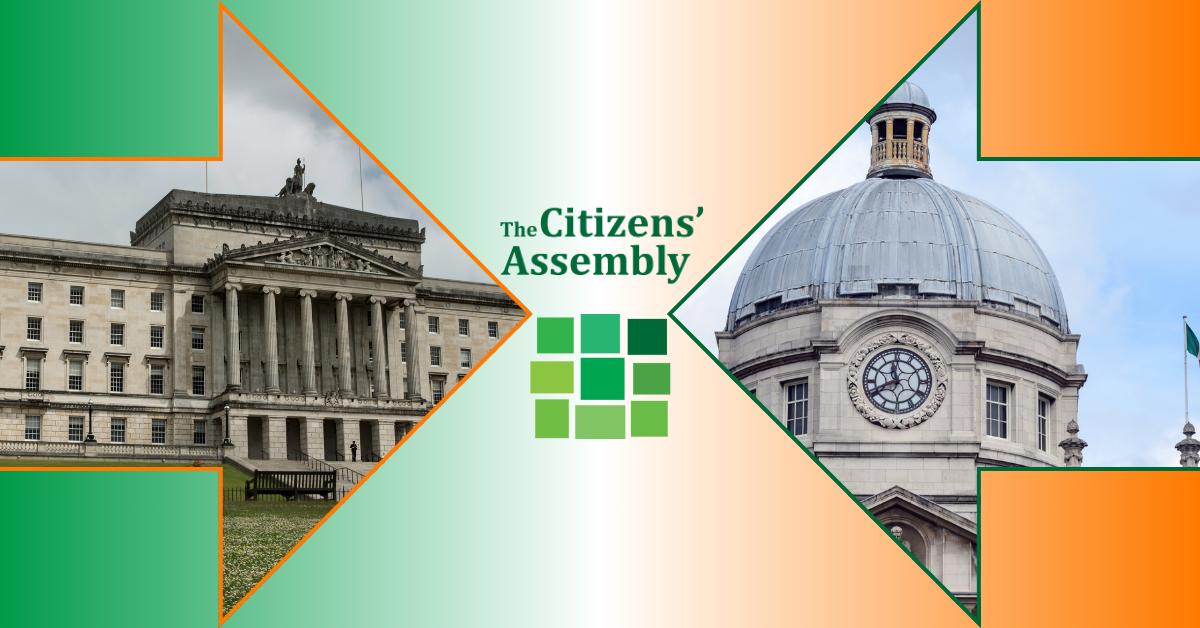In February 2023, the Irish Government announced the establishment of a Citizens Assembly on Drug Use. The Assembly began in April, aiming to “make recommendations on, legislative, policy and operational changes the State could make to significantly reduce the harmful impacts of illicit drugs on individuals, families, communities and wider society.”
The Assembly met for a period of 7 months and published a list of 36 final recommendations for considerations in January of this year, describing them as “significant changes to existing laws.”
While many of the recommendations underscore critical areas for reform, such as enhancing representation of people who use drugs (10), bolstering mental health and trauma-informed care in communities (31), and extending harm reduction across services (36), it is difficult to describe others as significant, let alone radical changes. Recommendations focus on supply reduction (24), demand reduction (27), and school-based drug prevention strategies (28) – broadly doubling down on what is done today. Robinson characterises the war on drugs as ‘a global commitment made by states, institutions, civil society, and individuals to eradicate the production, supply, and use of controlled substances’ (2020, p. 260). Clearly, the Assembly seems to be happy with continuing the war on drugs while dressing it in supposedly new reforms.
Closely observing – from afar
Observing the Citizens Assembly from Northern Ireland was a perplexing experience. As an Irish citizen, I was watching a form of progress take place: the breaking of the silence on the need for drug policy reform, and a broader understanding of terms like ‘decriminalisation’ and ‘harm reduction’. In Northern Ireland, which has just resumed political operations after two years of no government in place, drug policy is under Westminster control; no change can happen without British approval. The prospect of change in Ireland felt like a dream: the last time Westminster debated drug policy in 2021, not a single MP from Northern Ireland attended.
I watched the Citizens Assembly with the familiar tinge of sadness that we, in the North, were going to be left behind again.
However, as an anti-prohibition activist, I couldn’t help but feel that the Assembly was failing to achieve true progress. Buzzwords of ‘decriminalisation’ and ‘harm reduction’ were thrown around, cloaking what was actually the maintenance of drug prohibition. Despite the promotion of the Citizens Assembly as a distinct opportunity to revolutionize drug policy in Ireland, it ultimately falls short in its ambition to fundamentally reshape the overarching framework of the war on drugs.
The colonial legacy of Irish drug laws
To fully understand the evolving harms, a comprehensive historical analysis of alcohol and drug prohibition in Ireland, both pre- and post-partition, is crucial. Under British rule, the entire island experienced a century-long push for alcohol prohibition, championed by the Irish Temperance Movement and accumulating in a failed attempt to ensure that Northern Ireland – following partition in 1921– would be a dry state. Comparatively in the south of the island, the alcohol industry was an economic advantage for the new independent state, encouraging an Irish divergence from the alcohol prohibition movement. However both states – Northern Ireland and the Republic of Ireland – would converge decades later when the UN drug control conventions came into place.
To comply with international conventions, the UK enacted the Misuse of Drugs Act in 1971; Northern Ireland, still under British rule, would be governed by this same Act. And while the Republic of Ireland existed independently from the UK, it also implemented its own Misuse of Drugs Act in 1977 after four years of deliberation. The final Act, created to comply with UN conventions, perpetuated colonial practices of social control, criminalisation and civil rights abuses developed by imperial powers, manifested through drug laws.
Today, through the Citizens Assembly’s recommendations, we see a similar pattern repeating itself. The language of reform is there: the importance of a health-led model is clear, with harm reduction and decriminalisation to be considered. But at its core, the legacy of colonial practices remain unaltered.
This was particularly clear on January 31 2024, when a bill to decriminalise cannabis was debated in the Irish Parliament. Despite the Assembly recommending the need for urgent reforms, and the Joint Justice Committee Report from 2022 also recommending the decriminalisation of the possession of all drugs (not just cannabis), the government delayed the final vote on the bill by nine months, pushing it into the October electoral period.
When there was an opportunity to reform what the Citizens Assembly had said was needed to change, the government was reluctant to take action, more interested in forming time-consuming committees for “deeper” discussions when there is nothing more to discuss.
De-fanging the Assembly
The Citizens Assembly was given a short leash in its scope of critique. Its terms of reference constrained discussions solely to the “harmful impacts of illicit drugs”, excluding any negative effects arising from prohibitionist drug policies, which are widely understood to target the poorest and most ill in society. As a result, the enduring objectives of prohibition will continue to shape drug policy: the unachievable goal of ending society’s desire or ability to use drugs is to be reached through supply and demand reduction tactics. Even a close reading of the Citizens Assembly’s recommendations – such as the aim to ‘reduce shame and stigmatization of people who use drugs‘ (32) – make it clear that this is impossible without a radical assessment of drug control. However, prohibition remains politically unquestioned in Ireland.
While Paul Reid, the Chair of the Citizens Assembly, said that the recommendations “created an Irish model situated in an Irish context,” it seems like the history of Irish drug control is being re-interpreted to ensure that the Citizens Assembly is the final discussion to be had on drug policy. Ireland had four years of high-level debates to create its system of prohibition; citizens only had 7 months to undo it, constrained by limiting terms of discussion, along with political procrastination from policymakers when it came to implement their recommendations.
From Assembly to Unity
Contrary to the Citizens Assembly being a “generational opportunity”, I propose an alternative perspective: what we are witnessing could be the government’s final attempts to uphold a system of drug prohibition on an island partitioned in two. The genuine opportunity for transformative change will come with the establishment of a New Ireland, liberated from oppressive prohibitionist and colonial policies.
The 1998 Good Friday Agreement, which concluded the 30 year conflict of “the Troubles”, acknowledged the exclusive right of the people of the island of Ireland to determine their constitutional future. It stipulates that a united Ireland can be pursued through agreement between both parts of the island. The referenda that would be held both North and South of the border are commonly referred to as a “border poll”. Though a formal vote has not yet happened, discussions on the prospects of a New Ireland are gaining momentum. Conversations have already started, with political leaders calling for a border poll by 2030. Drug reform can become a key unifying policy for both sides of the border, emphasizing the importance of harm reduction approaches like Overdose Prevention Centres, naloxone provision, decriminalisation, and drug testing facilities to mitigate the destructive impact of prohibition.
In accordance with Robinson’s perspective that the logical progression of harm reduction is abolition, it becomes evident that abolitionist voices will play a crucial role in the lead-up to a potential border poll. Their influence is paramount to ensure that a new country does not emerge with prohibition deeply embedded in its foundations. If there is to be a border poll by 2030, then we must use these next six years to envisage, discuss, and plan for a New Ireland free from prohibition. If this oppressive system of drug control was created in four, we have the time needed to organise, mobilise, and build a better future for all who currently – and those who might someday wish to – call this island home.


